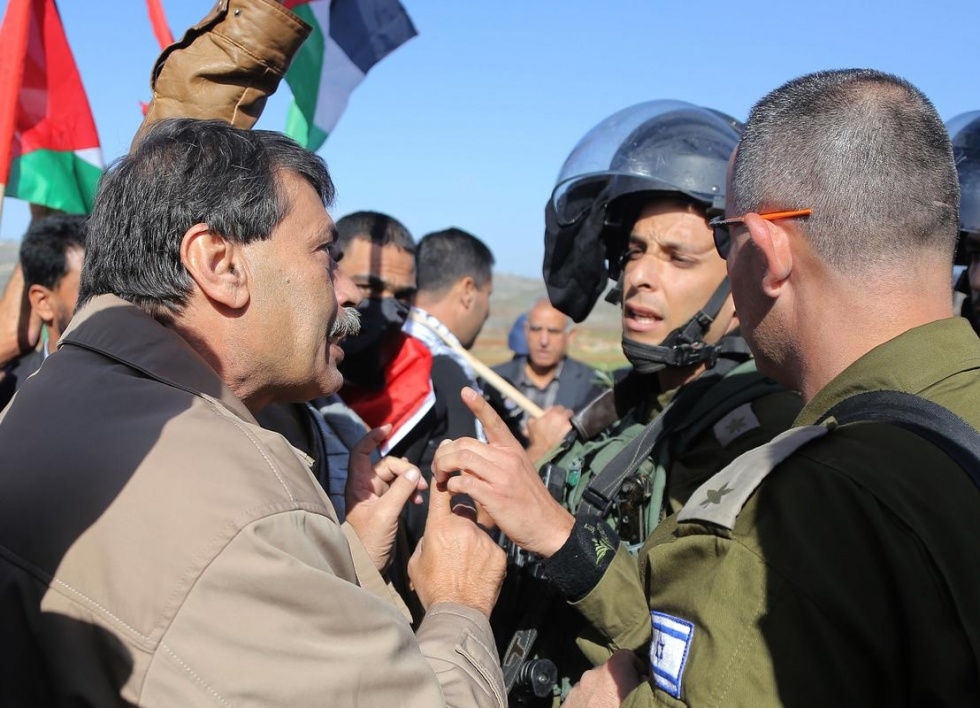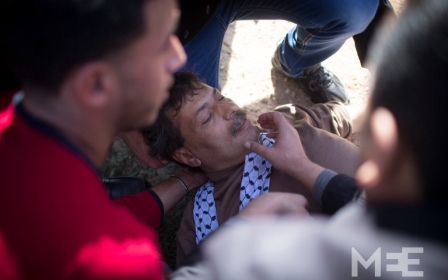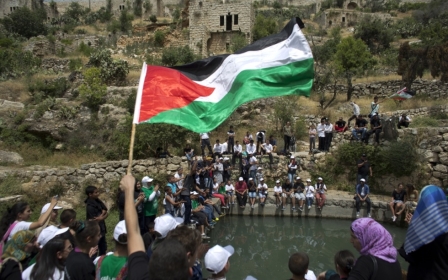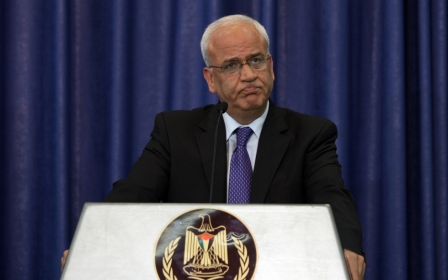Who is Ziad Abu Ein?

Ziad Abu Ein was born in 1959 and spent more than a decade behind bars over a series of arrests. He first became a political prisoner when he was arrested by Israeli authorities aged 18 years old in 1977. Two years later, Abu Ein was arrested in the United States after a hot pursuit by the Israeli intelligence service Mossad, and the CIA, who accused him of taking part in armed operations that had killed and injured tens of Israelis.
He spent three years in a Chicago prison, before becoming the first Palestinian prisoner to be extradited by the US to Israel. The decision triggered worldwide protests aimed at stopping the extradition, and Abu Ein himself began a hunger strike, but was unsuccessful in remaining in the US.
Once in Israel, the authorities sentenced him to life in prison. Abu Ein was part of a prisoner exchange deal in 1983, but he was re-arrested by Israeli intelligence from Ben Gurion Airport in Tel Aviv, where he was due to be deported to Algeria via Egypt.
The International Committee of the Red Cross (ICRC) strongly condemned Israel’s action, but failed to convince President Yitzhak Shamir to release Abu Ein. Shamir responded by saying that there are no ethics between Israel and "terrorists". Frustrated by his comments, the ICRC appealed to the Human Rights Council in Geneva, where international consensus - with the exception of the US and Israel - saw a resolution for Abu Ein’s immediate release passed.
He was not released, however, until two years later in 1985, when Abu Ein finally got out of prison as a result of another prisoner deal exchange. Initially, he was on the list of 36 names prevented from being released. A few months later, he was arrested for the third time under administrative detention, a form of internment subjected to indefinite renewal without any charges brought against the detainee.
Before the outbreak of the first intifada, Abu Ein appeared regularly on Israeli television talk shows to discuss politics. He was also involved in direct talks with Israeli officials on a project that would result in a strategic solution with Israel in the absence of a Palestinian state.
Abu Ein occupied a number of governmental positions following the formation of the Palestinian Authority (PA) in the wake of the 1993 signing of the Oslo Accords. He was the Deputy Minister of Prisoners’ Affairs from 2003, as well as a member of the Fateh Revolutionary Council.
During the second intifada, in 2002, Abu Ein was arrested and subjected to administrative detention again. Fateh leader Marwan Barghouti, wanted by Israel, was eventually captured after hiding in Abu Ein’s house in Ramallah. Barghouti was sentenced to 5 life sentences.
Abu Ein's relationship with Fateh's rival party Hamas was notorious. He regularly accused Hamas of fabricating information taken from Israeli sources, and on more than one occasion engaged in shouting matches with representatives of Hamas on television.
In September 2014, PA President Mahmoud Abbas appointed Abu Ein as the Minister of Wall and Settlement Affairs. The Ministry was established in 2004 to document Israeli practices relating to illegal settlement expansion and ongoing construction of the Separation Wall. The Ministry mobilizes People’s Committees to resist using peaceful means in areas and villages whose land is slated for confiscation by Israeli authorities. It also seeks international support and places heavy emphasis on UN resolutions that have ruled on the illegality of settlements.
The Ministry is involved in coordinating and planning non-violent activities on confiscated or land designated to be expropriated by the Israeli government. These activities being together a combination of Palestinian, Israeli and, sometimes, international media attention to the hotspot. Israeli forces usually respond to these protests with tear gas, rubber bullets and arrests, in order to scatter the protesters.
Since taking up his new ministerial position, Abu Ein has been a regular presence at protests. He was the father of four children, and suffered from diabetes and high blood pressure.
He died today after allegedly being pushed by Israeli border police in the village of Turmus’ayya, west of Ramallah. A large area of the village is slated to be confiscated by Israel, and Abu Ein and other protesters were there to plant trees, in what they described as a symbolic sign of resistance.
New MEE newsletter: Jerusalem Dispatch
Sign up to get the latest insights and analysis on Israel-Palestine, alongside Turkey Unpacked and other MEE newsletters
Middle East Eye delivers independent and unrivalled coverage and analysis of the Middle East, North Africa and beyond. To learn more about republishing this content and the associated fees, please fill out this form. More about MEE can be found here.




